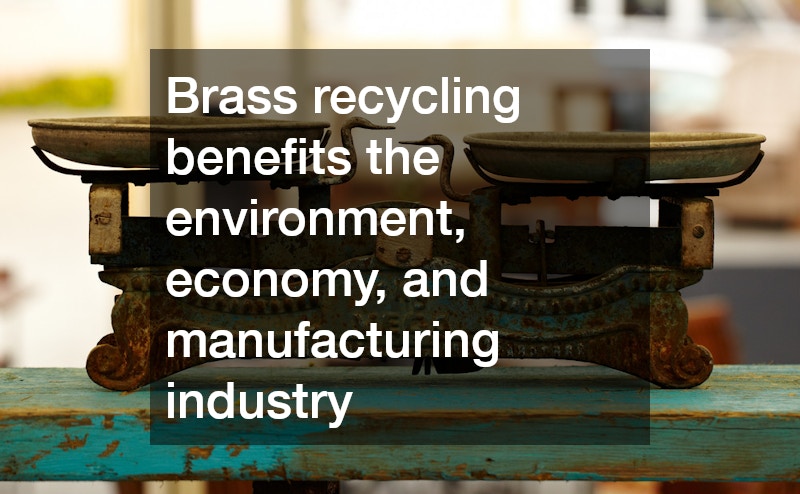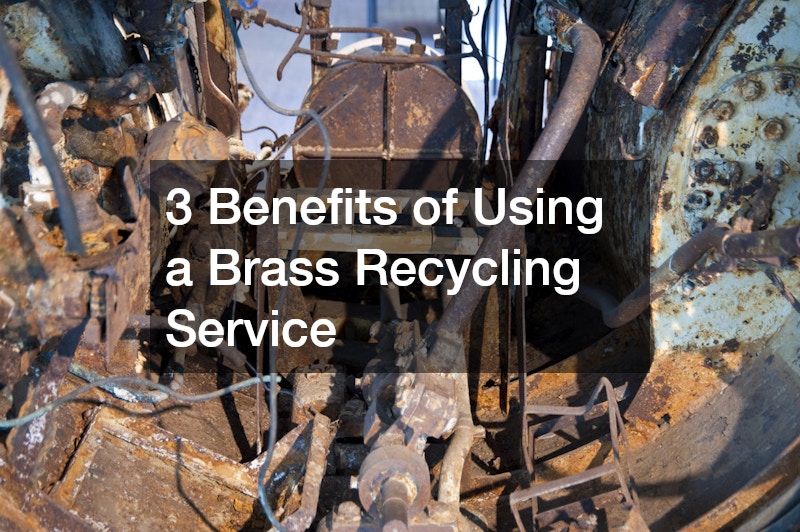Brass recycling services offer numerous advantages, playing a vital role in environmental sustainability and economic benefits. This article explores the top benefits of using these services, addressing common questions and providing insights into how utilizing a brass recycling service can contribute to a greener planet and more efficient resource use. The increased emphasis on sustainable practices makes understanding the value of recycling materials like brass more crucial than ever.
1. How Does Brass Recycling Contribute to Environmental Sustainability?
A. Reducing Waste in Landfills
Diverting brass from landfills significantly decreases environmental pollution, as brass can leach harmful substances into the soil and water over time. By recycling brass, we extend the lifespan of landfills, reducing the pressure to create new landfill sites, which often encroach on natural habitats. An effective recycling program ensures that less waste ends up in these landfill spaces, contributing to a cleaner and healthier ecosystem. With the reduction of landfill usage, less greenhouse gas emissions are produced from decomposing waste, thus lowering the overall carbon footprint.
B. Conserving Natural Resources
Recycling brass effectively conserves natural resources by minimizing the demand for new raw material extraction. Brass is an alloy made primarily of copper and zinc, both of which are finite resources that require significant energy and cost to mine. By reusing brass, we decrease the environmental burden associated with these extraction processes.
C. Energy Efficiency in Recycling Processes
Recycling brass is notably more energy-efficient than producing new brass from extracted raw materials. The recycling process requires significantly less energy, thereby reducing the overall carbon emissions associated with creating new products from scratch. For instance, recycling metals saves up to 95% of the energy needed to create the same product from raw materials.
2. What Economic Benefits Come from Using a Brass Recycling Service?
A. Cost Savings for Businesses
Recycling brass can lead to substantial cost savings for businesses, as using recycled materials reduces the need to purchase expensive newly-mined raw materials. The market prices for metals like copper and zinc can be volatile, leading to uncertainties in material costs for manufacturing industries. By integrating recycled brass into their supply chains, companies can stabilize their costs and enhance profitability. Also, recycling processes often employ more efficient, less resource-intensive methods that can reduce manufacturing expenses.
B. Revenue from Recycled Brass Sales
An often-overlooked advantage of brass recycling is the potential revenue generated from selling recycled brass. Companies and individuals can profit by selling their brass scrap in the recycling market, creating additional income streams. This monetary incentive is a crucial driver for both small businesses and large enterprises to engage in recycling activities actively. With the global demand for recycled metals on the rise, there is a lucrative opportunity for those willing to recycle their brass products.
C. Supporting the Recycling Industry and Job Creation
The demand for brass recycling services directly supports the recycling industry, which in turn creates numerous job opportunities across various sectors. From collection and processing to reselling recycled materials, the industry comprises a wide range of essential roles that contribute to economic stability. By fostering the recycling sector, we contribute to job creation, expanding employment opportunities in green industries. This job creation is vital in supporting communities and boosting local economies, especially in areas traditionally dependent on manufacturing.
3. Why is Brass Recycling Important for Manufacturing?
A. High-Quality Material Recovery
Recycling brass allows for the recovery of high-quality materials that meet stringent standards required in manufacturing applications. Recycled brass retains the physical and chemical properties necessary for producing durable, reliable products. This capability ensures that manufacturers can incorporate recycled materials without compromising the quality and performance of their end products. By meeting industry-specific requirements, recycled brass provides manufacturers with a consistent, reliable source of material. This consistency is crucial for maintaining production standards and fulfilling the high expectations of consumers.
B. Reduced Production Costs
Utilizing recycled brass can lead to reduced production costs by decreasing reliance on costlier new material supplies. When manufacturers use recycled metals, they benefit from lower procurement costs and fewer supply chain disruptions. This reduction in material costs is particularly beneficial when market conditions cause prices for raw materials to fluctuate significantly. By allocating resources more effectively, companies can enhance their manufacturing processes, develop new products, and expand their market reach. The cost efficiency provided by recycled materials aids manufacturers in maintaining competitiveness and promoting economic growth.
C. Ensuring Sustainable Manufacturing Practices
Integrating recycled materials like brass into manufacturing processes promotes sustainable practices, an increasingly important goal for industries worldwide. By prioritizing recycled materials, manufacturers reduce waste, conserve resources, and lower environmental impact, key elements of sustainable production. This approach aligns with global efforts to promote sustainability and environmental responsibility across all sectors. By committing to sustainability, manufacturers can fulfill consumer demand for responsible products, strengthening their market position.
Using brass recycling services presents significant benefits for environmental conservation, economic gain, and manufacturing efficiency. By reducing waste, conserving resources, and supporting sustainable practices, brass recycling plays a crucial part in advancing the move towards a more sustainable future. Whether for individuals or businesses, embracing brass recycling helps to ensure a healthy planet and a robust economy.
.

